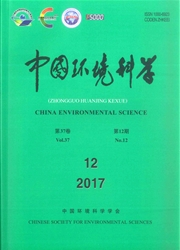

 中文摘要:
中文摘要:
为研究处罚机制对排污收费政策执行效果的影响,建立了排污收费政策下风险中性企业的最优决策模型,设计了经济学实验.采用数据统计、线性随机效应模型、单因素不等重复实验方差分析等方法分析实验数据,验证了该模型得出的假设.结果表明,边际处罚期望对于企业的违法量和排放量决策均有显著负影响;企业边际减排成本对于企业的排放量决策有显著正影响,对于违法量决策没有显著影响;相同边际处罚期望下,监测频率越高,企业的服从率越高,且在边际处罚期望较高时,更为明显.因此,提高边际处罚期望可同时改善企业违法行为与促进企业减排.同时,为降低执行成本,在边际处罚期望较低时,可首先将线性罚款向梯级罚款转变.当边际处罚期望上升到较高水平时,则应注重监测频率的提高.并应重点监控那些排污量大而不是边际减排成本高的企业.
 英文摘要:
英文摘要:
To study the effects of penalty design on pollution levy program enforcement in China, the optimal decision model of a risk-neutral firm was established and the economic experiment was designed to testify the hypothesis. Effects of penalty expectation (monitoring and penalties) on individual emissions and violations were negative and significant; A firm's marginal abatement costs of increased emissions had negative and significant effect on its choices of emissions and has no effect on its violations; Compared with penalties, monitoring frequency had larger impact on compliance rates. Policy makers should increase monitoring frequency and penalty to reduce violation and stimulate abatement. Current linear penalty functions should be changed to step-up ones. In addition, more enforcement resource should not be put on the firms with higher marginal abatement costs, but on those with larger emission volumes.
 同期刊论文项目
同期刊论文项目
 同项目期刊论文
同项目期刊论文
 期刊信息
期刊信息
